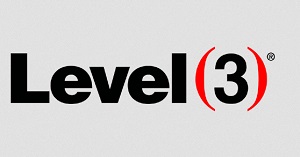Level 3: Some ISPs Playing Game Of ‘Chicken’
The smarter way to stay on top of the multichannel video marketplace. Sign up below.
You are now subscribed
Your newsletter sign-up was successful

Level 3 Communications is looking to tie paid peering agreements and disputes between ISPs and transit providers to the network neutrality debate, arguing that ISPs that refuse to upgrade their networks unless content providers agree to help pay for it are playing a dangerous game of “Chicken.”
Michael Mooney, Level 3’s general counsel, regulatory policy, outlined his concerns in a blog posted on Tuesday, acknowledging that recent evidence of large content distributors could be forced into cutting deals with ISPs to avoid congestion. Level 3 contends that some ISPs, citing AT&T among them, have agreement to augment capacity on reasonable terms while others are allowing their peering points to degrade in the hopes of exacting “arbitrary tolls.”
Some ISPs, citing the inequality of traffic being sent out versus what’s being sent in, have sought commercial deals in place of existing settlement-free arrangements. A recent, high profile example was the transit deal between Netflix and Comcast, which is one of the examples that Mooney appears to be alluding to. AT&T and Verizon Communications have said they are in similar interconnection talks with Netflix.
“While this is news du jour, it is a problem that has really been around for several years,” Mooney wrote. “Some ISPs agree to augment capacity on reasonable terms. But other ISPs try to strong arm the content providers into paying by playing a game of ‘chicken’ with the Internet. “
Mooney’s argument reopens one that Level 3 is has pressed earlier, most notably via its peering dispute with Comcast in in 2010 that has since been settled. At the time, Level 3 equated it as a network neutrality issue. The company appears to be bringing it up again as FCC chairman Tom Wheeler seeks to restore network neutrality rules that were largely vacated by the D.C. federal appeals court in January (Comcast, per the conditions of the NBCUniversal acquisition, must adhere to the original rules until 2018).
Mooney claims that some ISPs have refused to “hammer out a fair, equitable, scalable and resilient network architecture, but to no avail. We have also advised the FCC of the issue on more than one occasion, beginning in 2013 and as recently as three weeks ago.”
On the other end, people involved in peering deals, including the recent Comcast-Netflix accord, likewise argue that these are commercial agreements that fall well outside the view of network neutrality discussion.
The smarter way to stay on top of the multichannel video marketplace. Sign up below.
Mooney said it should be factored into the net neutrality discussion because congestion caused by peering issues can adversely affect VoIP calls, access to OTT video apps and other video streaming services, as well as “interactive” Web browsing tied to banking transaction, accessing medical records or using social networking services.
